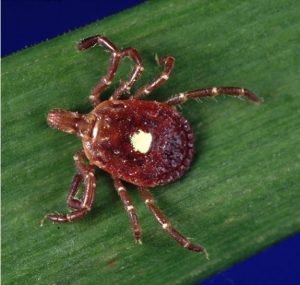Pests are a problem. They bite. They sting. They crawl. They are generally gross. No one likes pests, and as one of the only 24 hour pest control companies in NYC and Long Island City, we see a lot of them.
But there is one pest that we did not expect to have to face. One that can ruin your football tailgate barbecues worse than mosquitoes and flies combined: The Lone Star Tick.
Why is the Lone Star Tick Terrifying to Meat Eaters Everywhere?
Ticks carry disease. But for meat lovers, the Lone Star Tick carries perhaps the scariest disease of all. It causes people to become allergic to red meat – seriously and permanently allergic.
Inside of the saliva of some of these lone star ticks is something that changes your immune system to make you sensitive to a carbohydrate found exclusively in red meat, and before you think “well, I will deal with a bit of discomfort in order to still enjoy a burger,” the allergy itself is severe enough that it can be deadly. If this tick bites you, there is a chance you can never eat red meat again.
The Lone Star Tick is Now on Long Island
The Lone Star Tick used to be limited to the Southeast, but it has spread, and that’s bad news for those in New York, because as of this year there are now cases of this red meat allergy – and this type of tick – on Long Island.
It is now something that those that love red meat – and even those that do not – need to watch out for, because even if you think cutting red meat from your diet is easy, accidentally ingesting even a small amount can have severe consequences.
What Can Be Done For Homeowners in New York?
There isn’t much good news here. Not only are these ticks continuing to spread, but they are also more aggressive with humans than other types of ticks. They love biting.
The best thing you can do is be aware of these ticks. The faster you remove them, the less likely they will spread disease or allergy. Wear longer clothes when you can, avoid long grass, use DEET or other repellants, consider pest control if you have a grassy home, and always check the body of you, your children, and your pets when you’re in an area they may be present.
If you do suspect you’ve been bitten, call a doctor right away for next steps.


